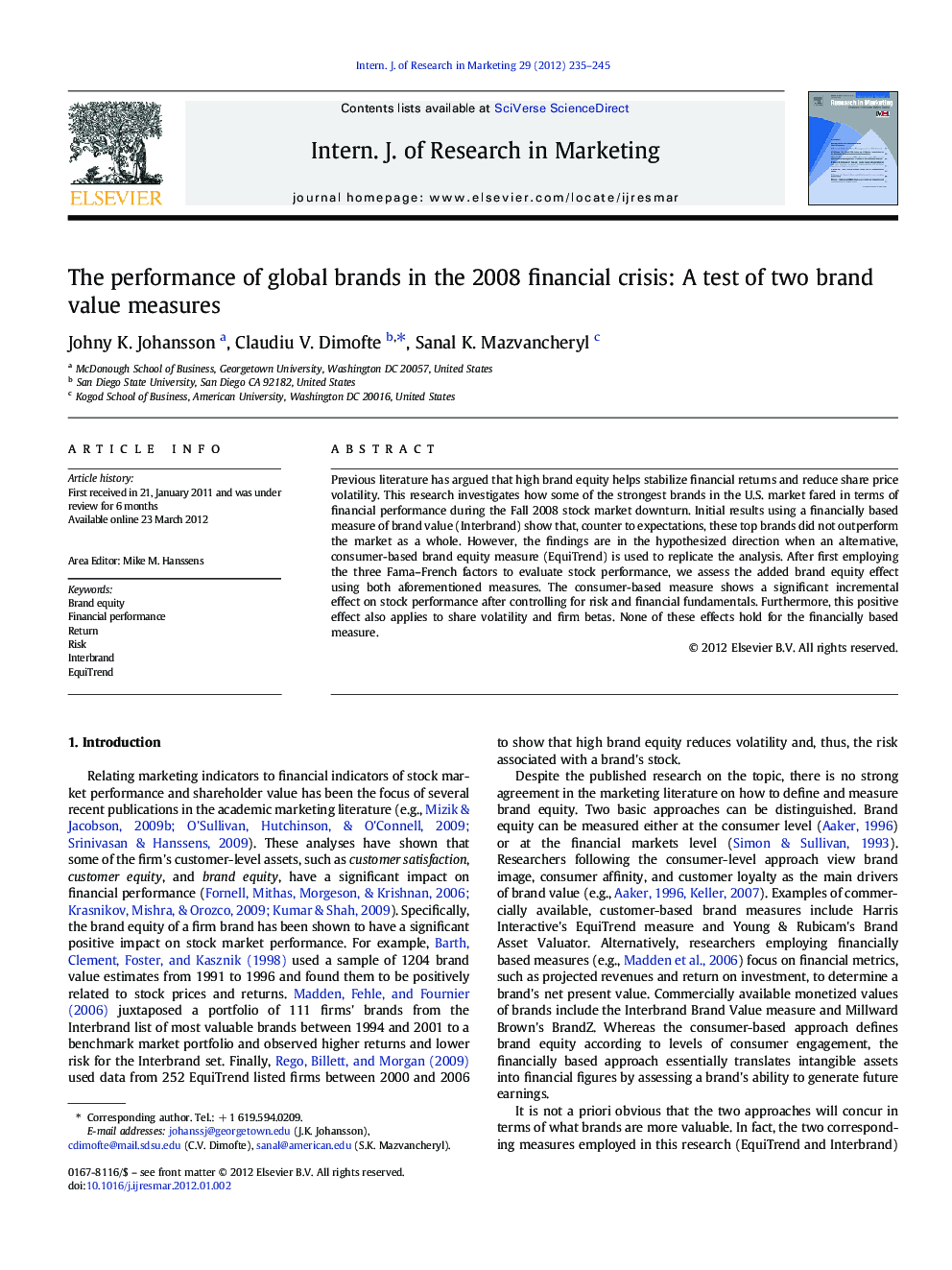| Article ID | Journal | Published Year | Pages | File Type |
|---|---|---|---|---|
| 880256 | International Journal of Research in Marketing | 2012 | 11 Pages |
Previous literature has argued that high brand equity helps stabilize financial returns and reduce share price volatility. This research investigates how some of the strongest brands in the U.S. market fared in terms of financial performance during the Fall 2008 stock market downturn. Initial results using a financially based measure of brand value (Interbrand) show that, counter to expectations, these top brands did not outperform the market as a whole. However, the findings are in the hypothesized direction when an alternative, consumer-based brand equity measure (EquiTrend) is used to replicate the analysis. After first employing the three Fama–French factors to evaluate stock performance, we assess the added brand equity effect using both aforementioned measures. The consumer-based measure shows a significant incremental effect on stock performance after controlling for risk and financial fundamentals. Furthermore, this positive effect also applies to share volatility and firm betas. None of these effects hold for the financially based measure.
► We assess the performance of global brands in the Fall 2008 stock market downturn. ► A financially based brand value measure (Interbrand) finds these brands not beating the market. ► A consumer-based brand equity measure (Equitrend) finds significant positive effects on stocks. ► These effects include higher returns, lower volatility, and lower firm betas. ► A brand's allegiance among consumers is a valuable asset in a financial crisis.
